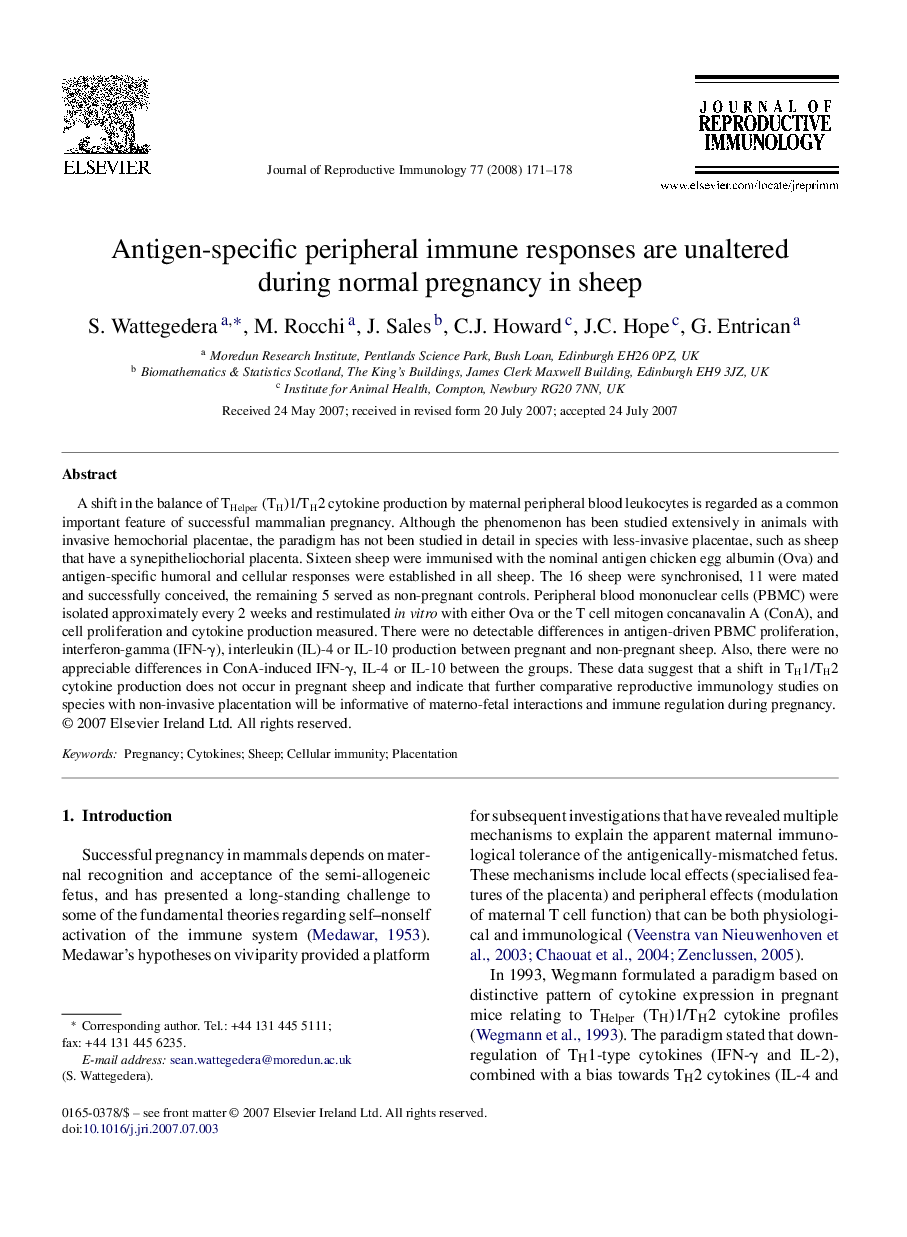| Article ID | Journal | Published Year | Pages | File Type |
|---|---|---|---|---|
| 3964817 | Journal of Reproductive Immunology | 2008 | 8 Pages |
A shift in the balance of THelper (TH)1/TH2 cytokine production by maternal peripheral blood leukocytes is regarded as a common important feature of successful mammalian pregnancy. Although the phenomenon has been studied extensively in animals with invasive hemochorial placentae, the paradigm has not been studied in detail in species with less-invasive placentae, such as sheep that have a synepitheliochorial placenta. Sixteen sheep were immunised with the nominal antigen chicken egg albumin (Ova) and antigen-specific humoral and cellular responses were established in all sheep. The 16 sheep were synchronised, 11 were mated and successfully conceived, the remaining 5 served as non-pregnant controls. Peripheral blood mononuclear cells (PBMC) were isolated approximately every 2 weeks and restimulated in vitro with either Ova or the T cell mitogen concanavalin A (ConA), and cell proliferation and cytokine production measured. There were no detectable differences in antigen-driven PBMC proliferation, interferon-gamma (IFN-γ), interleukin (IL)-4 or IL-10 production between pregnant and non-pregnant sheep. Also, there were no appreciable differences in ConA-induced IFN-γ, IL-4 or IL-10 between the groups. These data suggest that a shift in TH1/TH2 cytokine production does not occur in pregnant sheep and indicate that further comparative reproductive immunology studies on species with non-invasive placentation will be informative of materno-fetal interactions and immune regulation during pregnancy.
